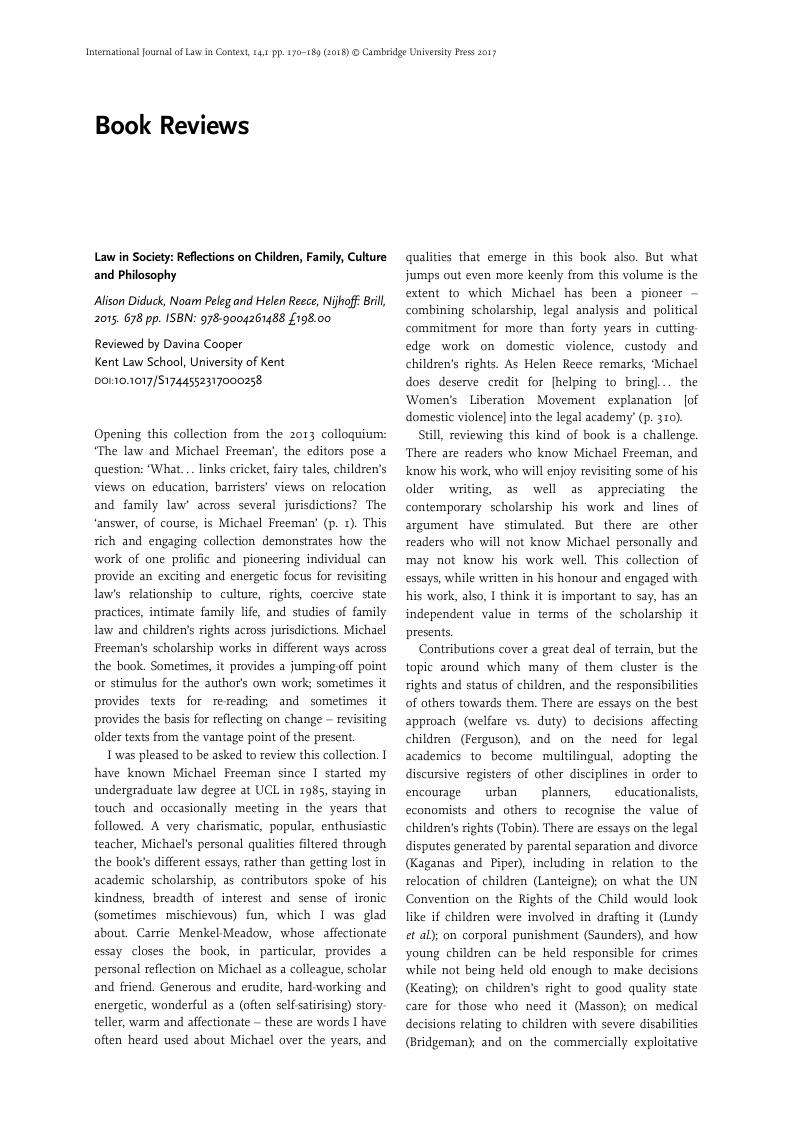No CrossRef data available.
Article contents
Law in Society: Reflections on Children, Family, Culture and Philosophy, Alison Diduck , Noam Peleg and Helen Reece , Nijhoff: Brill, 2015. 678 pp. ISBN: 978-9004261488 £198.00
Published online by Cambridge University Press: 01 June 2017
Abstract
An abstract is not available for this content so a preview has been provided. Please use the Get access link above for information on how to access this content.

- Type
- Book reviews
- Information
- Copyright
- Copyright © Cambridge University Press 2017
References
Lamble, S. (2011) ‘Epistemologies of Possibility: Social Movements, Knowledge Production and Political Transformation’. Unpublished PhD dissertation, University of Kent.Google Scholar
Painter, J. (2006) ‘Prosaic Geographies of Stateness’, Political Geography
25(7): 752–74.CrossRefGoogle Scholar


